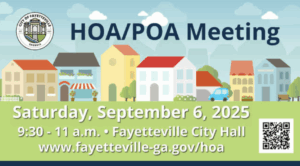The National Association for the Advancement of Colored People is pressing a federal judge to order a special election later in Fayette County this year under a court-ordered district voting format.
If the judge agrees, at least one board member on both the Fayette County Commission and the Fayette County Board of Education would be in essence removed from office to face an election campaign, likely to fill the remainder of the seat’s given term.
“Having now received this court’s judgment that at-large voting in Fayette County is an illegal voting system … plaintiffs and prospective voters should have the opportunity to participate in a special election for District 5 in November 2013,” the NAACP filing says.
The NAACP wants new elections for the board seats associated with the majority-minority fifth district that it has created on maps proposed to the court.
Meanwhile, attorneys representing the county commission have filed for an immediate appeal of U.S. District Judge Timothy C. Batten’s May 21 decree ordering district voting to replace at-large voting for the selection of members to both governing bodies.
Batten’s approval is necessary for an “in progress” appeal of his decision, which came in the summary judgment phase prior to a trial in which both sides could call witnesses, present other evidence and articulate their legal arguments in full.
Arguing for an immediate appeal, the county contends that the court failed to analyze whether a proposed district map that triggered the court’s ruling was “racially gerrymandered.”
The map in question was drawn by a demographer representing the National Association for the Advancement of Colored People, the lead plaintiff in the lawsuit, to create a voting district that is “majority minority” meaning that it has more than 50 percent of its residents being black and of voting age.
The NAACP is challenging the county’s motion for an immediate appeal, contending in part that such an appeal would be lengthy and endanger the application of court-ordered district voting in next year’s countywide elections.
The county’s current at-large election format allows voters to cast ballots for all five seats on both the county commission and the county board of education. The NAACP has argued that such a practice is tantamount to racial discrimination, and has successfully urged Judge Batten to order a switch to district voting to elect members of both governing bodies.
The county, in its motion for the immediate appeal, argues that there is little chance of the process drawing out too long. The county also notes that changing to a district voting format from the current at-large system will require a considerable expense.
Fayette County’s African American population was at 20.1 percent in the 2010 U.S. Census and the NAACP argues such numbers give black voters the right to have a majority-minority district specially drawn so black residents “can select the candidate of their choosing.” The NAACP has pointed out that no black resident has been elected to either the county commission or the board of education.
Under the district voting plan sought by the NAACP, Fayette voters would only be able to vote for one representative on each board, as district voting limits voters to casting ballots only for candidates who live in their particular geographic district.
District voting will also take away the current right of voters under the current at-large system to petition for recall of four of the five posts on each board. Georgia law requires that recall petitions, and their signatures, be signed only by persons who live in that particular district.
The county contends its decision to seek immediate review of the judge’s decision is in part an attempt to resolve the matter with the least expense to county voters.
The NAACP argues that such an appeal would only prolong resolution in the lawsuit and furthermore that there are several other matters to be decided beyond adopting new district maps including whether the judge would order a special election to be held.
At the same time, NAACP attorneys also argue there is time for an appeal to the 11th Circuit following full resolution of the case and “before the beginning of the next election cycle” while a final decision is necessary to mitigate the harm being done to black voters here.
“The time is now for Fayette County, following a nearly two century-old practice of maintaining a racially segregated county government, to implement a non-discriminatory electoral method that provides all Fayette County citizens the opportunity to elect their candidates of choice,” according to the NAACP brief.
The NAACP also claims that the commission “is seeking to perpetuate the county’s nearly 200-year tradition of maintaining a racially segregated county government,” a charge the county’s attorneys describe as “out of bounds.”
“While the Court found that the at-large system violates Section 2, the Court also made specific findings that rebut plaintiffs’ continuous accusations of racism,” according to a brief filed by county attorneys.
“For example, this court specifically found that the county’s motives in maintaining the at-large system were ‘not tenuous’ and that plaintiffs did not proffer any evidence “relating specifically to discrimination in Fayette County. … To accuse county defendants of attempting to perpetuate a ‘racially segregated county government’ is unwarranted invective.”










Leave a Comment
You must be logged in to post a comment.